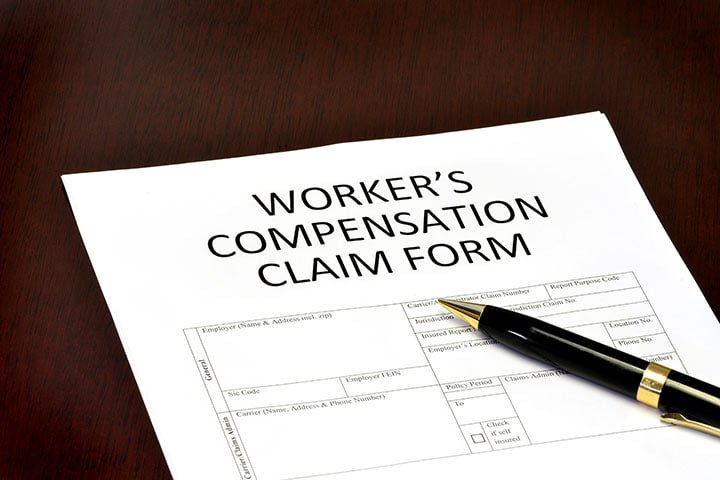
Spinal Cord Injuries Attorney
Spinal Cord Injuries Attorney
Spinal Cord Injuries Attorney: How Do Workers’ Comp Settlement Work? What You Need To Know.
Workers’ comp settlement can be a simple and straightforward matter – or a stressful court battle whereby you’ll need an experienced and reputable spinal cord injuries attorney Atlanta to fight for you to get the compensation that you deserve. Read on to learn what is involved, how settlements are calculated, and ways to reach an agreement.
How Workers’ Comp Settlements Are Reached
If a worker is fully recovered and back to work with no outstanding bills or unpaid benefits, the claim can simply be closed.
In many states, closing a claim involves a settlement negotiated between the insurer and the injured worker, often through his/her workers’ compensation attorney. (And if the parties can’t reach an agreement, a judge will need to decide after a hearing.)
The settlement process typically begins with an offer from the insurance company and employer. This may include payment for unpaid benefits or medical bills, as well as costs of future treatment. If an injury leaves a worker permanently impaired, he/she may also be entitled to a disability award to compensate him/her.
A work-related injury settlement can be either a lump sum or a structured payment plan:
- Lump-sum payment – The injured employee receives a one-time payment for all medical costs and benefits under the claim. Depending on the state, the injured worker may have to agree not to seek any future reimbursement for the injury.
- Structured payment – The injured employee will receive regular payments over a specified period. They may include a separate medical account to pay for future medical care.
Before a settlement is reached, you and your attorney calculate what you think the workers’ comp payout should be. It should be enough to cover previous medical bills and the costs of any future medical care. The settlement should factor in:
- Balances on medical bills, including ambulance rides
- The likelihood of future treatments, such as physical therapy or surgery
- Lost wages or future wage loss
- Temporary or permanent disability payments
- Attorney fees
- State workers’ comp laws and limitations
Once the calculation is finalized, your spinal cord injuries attorney Atlanta will negotiate with the insurance company. Typically, the final settlement is a compromise between the two parties.
In some states, a judge must review the proposed settlement before it is finalized. The judge will consider whether it is fair to the employee, but it is always helpful for you to have an experienced workers’ comp lawyer to protect your interests.
Your role is minimal during settlement negotiations if you have an attorney to represent you and negotiate on your behalf. But, still, keep the lines of communication open and stay updated on progress.
Settlements may take weeks or months to hammer out. During this time, be sure you know your return-to-work options. Injured workers who’re kept informed and know their options are less likely to sue.
If the insurer and your attorney can’t reach a settlement, then the matter will likely head to court for a hearing. And that can be a bit of a gamble for both sides. It will now be upon the court to decide which benefits you deserve based on the merits of your case.
Denied Workers Compensation Claims
Learn about some of the common reasons for denials of workers’ compensation claims – and what you can do about it.
If you were injured on the job or developed a medical condition because of your work—such as lung disease from exposure to toxic chemicals or a cumulative trauma like a repetitive strain injury (RSI)—you are no doubt hoping to be eligible for workers’ compensation benefits.
But what can you do if your claim has been denied? The answer could depend on the reasons for the denial.
Common Reasons for Denial of Workers’ Comp Claims
Sometimes, employers or their insurance companies often look for any possible reason to deny workers’ comp claims. Of course, that reason should be a valid one under the law. There are several common reasons for claim denials, including:
- Missed deadlines – To receive workers’ comp benefits, you should report your injury or illness to your employer right away. After that, you generally need to file a workers’ comp claim with the state agency (although in some states, your employer or the insurance company will take care of this step after you have notified them of your injury). States have different time limits for reporting injuries and filing claims. For instance, Georgia law requires injured workers to notify their employer within 30 days of the date of injury. If you miss the deadlines, your claim will probably be denied. In some states, you will not be penalized for missing the reporting deadline (by not giving your employer written notice of the injury), as long as your supervisor actually knew that it happened. Still, your claim must be filed in time.
- Disputes about whether the injury is work-related – Your employer may say that you weren’t working when you were injured, that you were involved in some kind of misconduct at the time, or that your current medical condition isn’t actually a result of a workplace accident or exposure. Whatever the reason for the dispute over whether your injury or illness is work-related, you’ll need to gather evidence to support your claim and hire an experienced, reputable, and dedicated spinal cord injuries attorney Atlanta to help you build a strong case. Maybe you need witness accounts about the circumstances of the accident. Or you may need more medical evidence. If your treating doctor has already attributed your condition to your work, but the insurance company disagrees, you may need to attend an independent medical examination to get another doctor’s opinion.
- Your condition doesn’t meet state guidelines – The law in your state may have special restrictions on workers’ comp claims for cumulative trauma or psychological conditions. Some states rule out workers’ comp benefits for illnesses caused by long-term emotional stress at work. Or your injuries might not be severe enough to meet the requirements for a workers’ comp claim in your state.
- You filed the claim after you left your job – Insurers usually deny claims that were filed after the employee was fired, laid off, or quit. But you might have had a good reason for the delay. Maybe you reported the injury while you were still at the job, or you were injured in the period after you gave (or were given) notice but before your last day. Or maybe you were fired in retaliation for reporting a workplace injury (which is illegal). Some states have special rules for workers’ comp claims filed after you left your job. If you qualify for one of the exceptions in your state’s law, you may be able to contest the denial.
What to Do When Your Workers’ Comp Claim Is Denied
You shouldn’t give up your right to workers’ comp benefits just because your claim was initially denied. First, look closely at the letter telling you that your claim was denied. It will probably include the reasons for the denial.
If you think it was simply a matter of mistaken paperwork or something similar, you might consider contacting the claims adjuster to see if you can clear up the issue. But this route isn’t likely to be successful unless your employer or the insurance company made a bona fide mistake and admits it. More likely, you will have to consider appealing the denial.
Appealing a Workers’ Comp Claim Denial
The letter you received may include information about how to appeal the denial of your claim. If so, read it carefully. The appeals process varies in each state. Often, the first level of appeal will be at a hearing before an administrative law judge, where you will have to present medical and other evidence to support your claim. The hearing can be through a state labor department or a state board of workers’ compensation. There are additional levels of appeal beyond the initial administrative levels as well, which vary depending on the state.
When You Need a Lawyer
Unless your claim was denied due to a simple mistake that was immediately cleared up, it would be smart to reach out to a workers’ comp lawyer as soon as possible. An attorney can help you determine whether an appeal would be the best course of action for you. The timelines for workers’ comp appeals are short and strict, and you don’t want to lose your rights to benefits just because you missed a deadline.
Before you consider filing an appeal yourself, you should definitely talk to a spinal cord injuries attorney Atlanta. Appeals are complicated legal processes, involving rules of evidence and civil procedure that the judge will expect you to know. If you don’t win at the initial levels, you may not be able to present additional evidence later in the process.
One of the reasons that many injured employees lose their appeals is because they didn’t have an experienced workers’ compensation attorney at their side to help them prepare a strong case. Also, most workers’ comp lawyers charge only a percentage of the benefits you receive, so it won’t cost you anything unless you win.
Spinal Cord Injuries Attorney
If you were injured at work and want to file a claim for workers’ compensation benefits, or perhaps your claim was denied and you want to appeal, contact Bobe & Snell Law Office LLC to speak to one of our experienced workers’ comp attorneys and find out how we will help you.
Call us today at (470) 268-5802 or get in touch with us online for a free, no-obligation consultation/case review.

Spinal Cord Injuries Attorney



